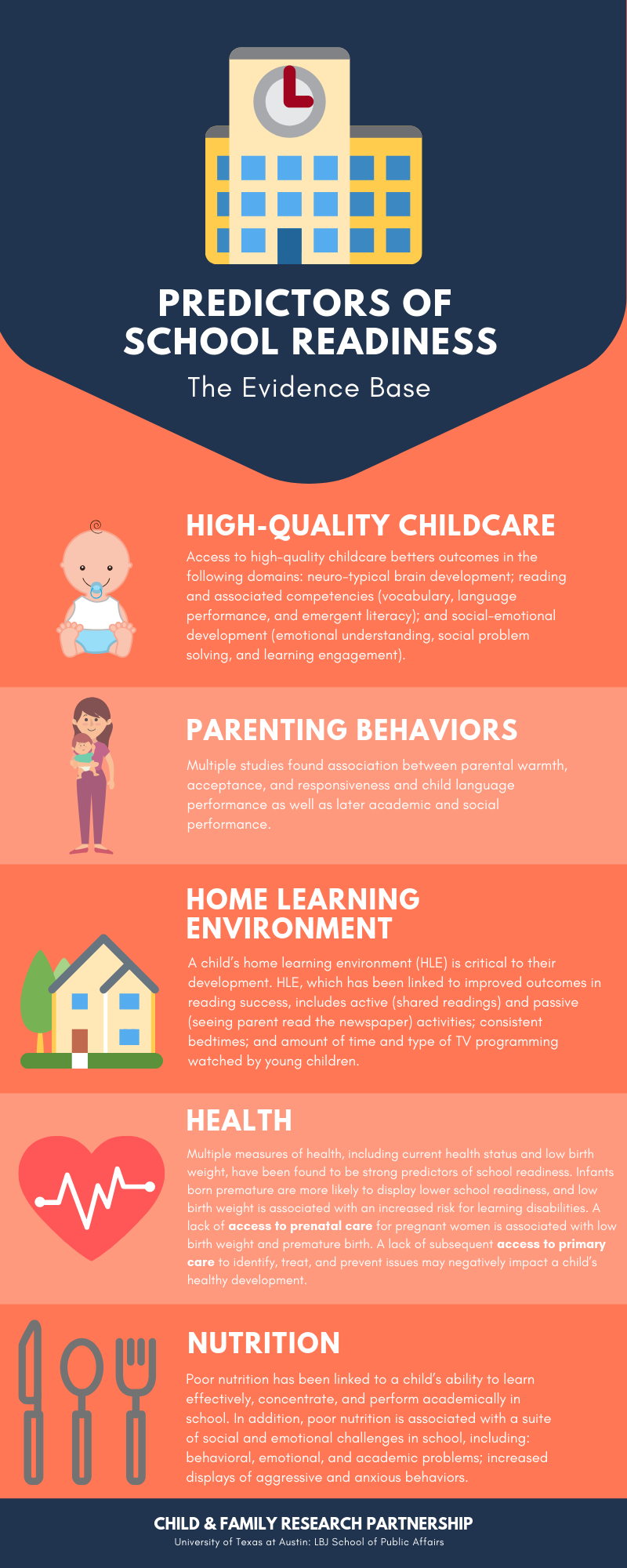School readiness is one of the best population-level indicators of young children’s well-being; it is strongly correlated with better outcomes over the lifespan. This includes metrics such as attainment of higher levels of education and ability to secure stable employment. Through relatively recent advances in the understanding of neuroscience it is clear that experiences in early childhood affect both the underlying architecture and long-term function of the brain. As such, school readiness rates cannot be addressed solely by interventions focused on four year old children. Young children (birth to three) need strong relationships with their families as well as access to health care, social-emotional development support, and high-quality early care and education programs.
